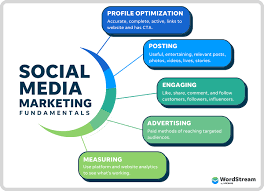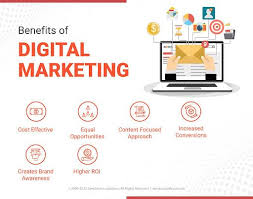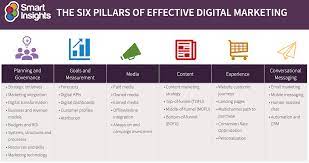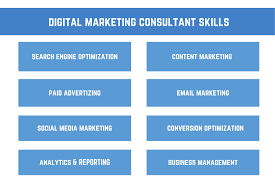Unleashing the Power of Content Marketing: Engage, Connect, and Thrive
Content Marketing: Empowering Businesses to Connect and Engage
In today’s digital age, where information is readily available at our fingertips, content marketing has emerged as a powerful tool for businesses to connect with their target audience, build brand awareness, and drive meaningful engagement. It has become an integral part of any successful marketing strategy, enabling companies to stand out in a crowded marketplace.
So, what exactly is content marketing? At its core, it involves creating and distributing valuable and relevant content that resonates with your audience. This can take various forms such as blog posts, articles, videos, infographics, podcasts, social media posts, and more. The key is to provide your audience with content that educates, entertains, or inspires them while subtly promoting your brand.
One of the primary benefits of content marketing is its ability to establish trust and credibility. By consistently delivering high-quality content that addresses the needs and interests of your target audience, you position yourself as an authority in your industry. This builds trust among consumers who are more likely to choose a brand they perceive as knowledgeable and reliable.
Moreover, content marketing allows businesses to engage with their audience on a deeper level. Through compelling storytelling and informative content, brands can connect with their customers on an emotional level. By understanding their pain points and desires, businesses can create content that resonates with their target market’s values and aspirations. This emotional connection fosters loyalty and encourages customer advocacy.
Another advantage of content marketing is its potential for organic reach and visibility. When you create valuable content that appeals to your target audience’s interests or solves their problems, they are more likely to share it with others through social media platforms or word-of-mouth. This amplifies your brand’s reach beyond your immediate network and exposes it to new potential customers.
Furthermore, content marketing plays a crucial role in enhancing search engine optimization (SEO). Search engines prioritize websites that provide valuable information through high-quality content. By consistently publishing relevant content, you increase your website’s visibility in search engine results, driving organic traffic and improving your online presence.
In addition to these benefits, content marketing allows businesses to nurture leads and guide them through the customer journey. By creating content that aligns with each stage of the buying process, from awareness to consideration and decision-making, you can provide valuable information that helps potential customers make informed choices. This positions your brand as a trusted advisor and increases the likelihood of conversion.
To succeed in content marketing, it is essential to develop a well-defined strategy. Start by understanding your target audience’s preferences, interests, and pain points. This will enable you to create content that resonates with them. Set clear goals for your content marketing efforts and define key performance indicators (KPIs) to measure success. Consistency is key – regularly publish high-quality content across various channels to maintain engagement and build brand awareness.
In conclusion, content marketing has revolutionized the way businesses connect with their audience in today’s digital landscape. By providing valuable and relevant content, brands can establish trust, engage with their customers on a deeper level, increase organic reach, enhance SEO efforts, and guide potential customers through the buying process. Embrace the power of content marketing as a strategic tool for growth and stay ahead in an increasingly competitive market.
7 Essential Tips for Effective Content Marketing in the UK
- Start with a plan
- Know your audience
- Quality over quantity
- Utilise multiple channels
- Measure results
- Be consistent
- Keep up with trends
Start with a plan
Start with a Plan: The Foundation of Successful Content Marketing
In the world of content marketing, the saying “failing to plan is planning to fail” holds true. To achieve success and maximize the impact of your content marketing efforts, it is crucial to start with a well-thought-out plan. A solid plan serves as the foundation upon which you can build a successful content strategy that aligns with your business goals.
When starting with a plan, the first step is to define your objectives. What do you aim to achieve through your content marketing efforts? Whether it’s increasing brand awareness, generating leads, driving website traffic, or establishing thought leadership, clearly defining your goals will help you stay focused and measure success.
Next, identify your target audience. Who are they? What are their needs, interests, and pain points? Understanding your audience’s demographics and psychographics will enable you to create content that resonates with them on a deeper level. This knowledge will guide your content creation process and ensure that you deliver value to your audience.
Once you have defined your objectives and identified your target audience, it’s time to develop a content strategy. This involves determining the types of content you’ll create (blog posts, videos, infographics), selecting appropriate channels for distribution (website, social media platforms), and establishing a consistent publishing schedule.
A key aspect of planning is conducting thorough keyword research. By identifying relevant keywords related to your industry or niche, you can optimize your content for search engines and increase its visibility in search results. This helps drive organic traffic to your website and attract users who are actively searching for information related to what you offer.
Furthermore, planning should include creating an editorial calendar. This calendar outlines the topics and themes for each piece of content you’ll produce over a specific timeframe. It ensures that you maintain consistency in publishing and helps you stay organized by providing a clear roadmap for content creation.
Additionally, consider incorporating different content formats to cater to diverse audience preferences. Some people prefer reading blog posts, while others enjoy watching videos or listening to podcasts. By diversifying your content formats, you can reach a wider audience and keep them engaged.
Lastly, don’t forget to track and measure the performance of your content marketing efforts. Utilize analytics tools to monitor key metrics such as website traffic, engagement rates, conversion rates, and social media interactions. This data will provide valuable insights into what’s working well and what can be improved upon, allowing you to refine your strategy for optimal results.
In conclusion, starting with a plan is essential for successful content marketing. It sets the direction for your efforts, ensures alignment with business goals, helps you understand your target audience better, guides your content creation process, and enables measurement of success. By investing time in developing a solid plan, you lay the groundwork for effective content marketing that drives meaningful results for your business.
Know your audience
One of the most critical tips for successful content marketing is to know your audience inside out. Understanding who your target audience is and what they want is the foundation upon which effective content strategies are built.
Knowing your audience allows you to create content that resonates with them on a deeper level. By understanding their demographics, interests, preferences, and pain points, you can tailor your content to address their specific needs. This targeted approach ensures that your content is relevant and valuable to your audience, increasing engagement and building trust.
To truly know your audience, start by conducting thorough research. Analyze data from various sources such as website analytics, social media insights, customer surveys, and market research reports. This data will provide valuable insights into your audience’s behavior patterns, preferences, and interests.
Additionally, engage in conversations with your customers through social media platforms or email newsletters. Ask for feedback and encourage them to share their thoughts and opinions. This direct interaction helps you understand their challenges and aspirations better.
Once you have gathered this information, create detailed buyer personas that represent different segments of your target audience. These personas should include demographic information such as age, gender, location, as well as psychographic details like interests, values, motivations, and pain points. These personas serve as a reference point when creating content that speaks directly to each segment’s unique needs.
Knowing your audience also helps you determine the most appropriate channels for distributing your content. If your target audience predominantly uses social media platforms like Instagram or TikTok, focus on creating visually appealing content that resonates with those platforms’ aesthetics. On the other hand, if your audience prefers long-form articles or podcasts, invest in creating informative and engaging written or audio content.
Furthermore, understanding your audience enables you to craft compelling storytelling that connects emotionally with them. By knowing their desires or challenges intimately, you can create narratives that evoke empathy or inspire action. When people feel understood through storytelling that speaks directly to them, they are more likely to engage with your content and develop a deeper connection with your brand.
In conclusion, knowing your audience is the cornerstone of successful content marketing. By understanding their demographics, interests, preferences, and pain points, you can create targeted and valuable content that resonates with them. This deep understanding allows you to tailor your content strategy, select the right channels for distribution, and craft compelling storytelling that builds a strong bond between your audience and your brand. Invest time in researching and getting to know your audience—it will pay off in the form of increased engagement, loyalty, and business growth.
Quality over quantity
When it comes to content marketing, the age-old saying “quality over quantity” holds true. In a digital world saturated with information, it’s essential to prioritize delivering valuable and high-quality content to your audience.
While it may be tempting to focus on churning out a large volume of content, bombarding your audience with mediocre or irrelevant material can do more harm than good. Instead, investing time and effort into creating fewer but exceptional pieces of content can yield far better results.
Why is quality so important? Firstly, quality content establishes your credibility and expertise in your industry. By providing well-researched and insightful information, you position yourself as a trusted source of knowledge. This builds trust among your audience and encourages them to return for more valuable content in the future.
Secondly, quality content is more likely to be shared and engaged with by your target audience. When you deliver content that genuinely resonates with your readers, they are more inclined to share it with others through social media or word-of-mouth. This amplifies your brand’s reach organically and exposes it to new potential customers.
Moreover, search engines such as Google prioritize high-quality content in their algorithms. By consistently delivering valuable and relevant material, you increase the visibility of your website in search engine results. This improves your chances of attracting organic traffic and reaching a wider audience.
Additionally, quality content has a longer lifespan compared to quantity-focused content. While a high volume of posts may quickly become outdated or forgotten, well-crafted pieces that offer timeless value can continue to attract readers over an extended period. This longevity ensures that your efforts have a lasting impact on brand awareness and engagement.
To prioritize quality over quantity in your content marketing strategy, start by understanding your target audience’s needs and preferences. Conduct thorough research on topics that resonate with them and provide genuine value. Take the time to craft compelling headlines that grab attention and invest in creating engaging visuals or multimedia elements that enhance the overall user experience.
Furthermore, ensure that your content is well-written, error-free, and easy to digest. Use a consistent tone and style that aligns with your brand’s voice and values. Pay attention to the details, such as proper formatting, grammar, and punctuation. These small but significant factors contribute to the overall quality of your content.
In conclusion, in the realm of content marketing, quality should always take precedence over quantity. By focusing on delivering exceptional content that resonates with your audience, you establish credibility, increase engagement, improve search engine visibility, and create a lasting impact on your brand’s reputation. Remember, it’s better to produce fewer outstanding pieces than to overwhelm your audience with mediocre content.
Utilise multiple channels
Utilise Multiple Channels: Maximising the Reach and Impact of Content Marketing
In the ever-evolving world of content marketing, one tip stands out as a game-changer: utilise multiple channels. Gone are the days when a single platform could effectively reach and engage your target audience. Today, it’s all about diversifying your approach and leveraging various channels to maximise your content’s reach and impact.
Why limit yourself to just one channel when there are numerous platforms available to connect with your audience? By utilising multiple channels, you can tap into different demographics, preferences, and consumption habits. This allows you to cast a wider net and ensure that your content reaches as many potential customers as possible.
Start by identifying the channels that align with your target audience. Is your demographic active on social media? Do they prefer consuming video content or written articles? Are they more likely to engage with email newsletters or podcasts? Understanding these preferences will help you determine which channels to prioritise.
Social media platforms like Facebook, Instagram, LinkedIn, Twitter, and YouTube offer immense potential for reaching a vast audience. Each platform has its own unique features and user base, so tailor your content accordingly. Engage with followers through meaningful conversations, share valuable insights, and encourage them to share your content with their networks.
Blogging remains a powerful channel for sharing in-depth knowledge and establishing thought leadership. Create informative blog posts that address common pain points or provide solutions within your industry. Optimise these posts for search engines to improve their visibility and attract organic traffic.
Email marketing is another effective channel for nurturing leads and maintaining customer relationships. Craft engaging newsletters that provide exclusive content or special offers to subscribers. Personalise these emails based on user preferences or behaviours to enhance engagement.
Podcasts have gained popularity in recent years due to their convenience and accessibility. Consider launching a podcast series where you can discuss industry trends, interview experts, or share insightful stories related to your business. This audio format allows your audience to consume content while on the go, expanding your reach and brand exposure.
Video content is a highly engaging medium that captures attention and delivers messages effectively. Create informative videos, product demonstrations, or behind-the-scenes glimpses of your business. Platforms like YouTube and TikTok offer great opportunities for sharing video content and reaching a wide audience.
Remember, consistency is key across all channels. Regularly publish valuable content to keep your audience engaged and interested. Tailor your messaging to suit each platform’s unique characteristics while maintaining a consistent brand voice and identity.
By utilising multiple channels, you can amplify the impact of your content marketing efforts. Diversifying your approach ensures that you connect with a broader range of potential customers, maximise brand exposure, and increase engagement. Embrace the power of multiple channels and watch as your content reaches new heights in terms of reach and effectiveness.
Measure results
One of the most crucial aspects of content marketing is measuring results. While creating and distributing valuable content is essential, it’s equally important to track and analyze the impact of your efforts. By measuring results, you gain valuable insights into what works and what doesn’t, allowing you to refine your strategy and maximize your return on investment.
Measuring results in content marketing involves looking beyond vanity metrics such as likes, shares, or page views. While these numbers can provide a general idea of engagement, they don’t necessarily reflect the true impact on your business goals. Instead, focus on key performance indicators (KPIs) that align with your objectives.
For example, if your goal is to generate leads, track metrics such as conversion rates, form submissions, or email sign-ups resulting from your content. If brand awareness is your focus, monitor metrics like reach, impressions, or social media mentions. By setting specific KPIs based on your goals, you can accurately measure the success of your content marketing efforts.
To effectively measure results, leverage analytics tools that provide detailed data about user behavior and engagement with your content. Platforms like Google Analytics offer valuable insights into website traffic sources, user demographics, time spent on pages, and more. Social media platforms also provide analytics dashboards to track engagement metrics specific to each platform.
Regularly reviewing these analytics allows you to identify trends and patterns in audience behavior. For instance, you might discover that certain types of content perform better than others or that specific channels drive higher engagement. Armed with this knowledge, you can optimize future content creation and distribution strategies accordingly.
In addition to quantitative data from analytics tools, qualitative feedback is equally important. Encourage audience interaction by inviting comments or conducting surveys to gather insights directly from them. Pay attention to their feedback and use it to refine your content strategy further.
Remember that measuring results is an ongoing process rather than a one-time task. Continuously monitor performance against KPIs and adapt your strategy as needed. Regularly review and analyze data to identify areas for improvement and capitalize on successful tactics.
By measuring results, you gain valuable insights into the effectiveness of your content marketing efforts. It enables you to make data-driven decisions, refine your strategy, and ultimately achieve better results. So, don’t overlook this crucial aspect of content marketing – measure your results to unlock the full potential of your content and drive meaningful business outcomes.
Be consistent
Consistency: The Key to Unlocking Content Marketing Success
In the realm of content marketing, one tip reigns supreme: be consistent. Consistency is the secret ingredient that can transform your content marketing efforts from sporadic to impactful. It is the key that unlocks the door to success in building brand recognition, engaging your audience, and driving meaningful results.
When we talk about consistency in content marketing, we mean two things: regularity and quality. Firstly, it’s crucial to establish a consistent publishing schedule. Whether it’s a weekly blog post, a monthly newsletter, or daily social media updates, sticking to a predictable routine helps you stay on your audience’s radar. By consistently delivering fresh content, you keep your brand top of mind and create an expectation for your audience to look forward to what you have to offer.
Moreover, consistency in quality is equally important. Your audience expects valuable and relevant content from you every time they engage with your brand. Ensuring that each piece of content meets a certain standard builds trust and credibility. Consistently high-quality content not only keeps your existing audience engaged but also attracts new followers who appreciate the value you provide.
Consistency also plays a significant role in search engine optimization (SEO). Search engines favor websites that regularly produce fresh and relevant content. By consistently publishing high-quality articles or blog posts, you improve your chances of ranking higher in search engine results pages (SERPs). This increases organic traffic to your website and boosts its visibility online.
Furthermore, being consistent allows you to establish a distinct brand voice and identity. When you consistently deliver content aligned with your brand values and messaging, it reinforces your brand image in the minds of your audience. Over time, this consistency builds recognition and strengthens brand loyalty.
Consistency extends beyond just publishing schedules; it also applies to the overall messaging and tone of your content. Ensure that all aspects of your communication align with each other across different channels. This cohesiveness reinforces your brand’s identity and helps create a seamless experience for your audience, regardless of where they encounter your content.
To maintain consistency, it’s essential to have a well-structured content strategy in place. Plan your content calendar in advance, aligning it with your business goals and marketing objectives. Create a content style guide that outlines the tone, voice, and visual elements that represent your brand. This guide will serve as a reference for all content creators within your organization, ensuring consistency across the board.
In conclusion, consistency is the backbone of successful content marketing. By being consistent in both publishing frequency and quality, you establish trust with your audience, strengthen brand recognition, improve SEO efforts, and create a cohesive brand identity. So, commit to consistency in your content marketing journey and unlock the door to long-term success.
Keep up with trends
In the ever-evolving world of content marketing, staying up-to-date with the latest trends is crucial for success. As technology advances and consumer preferences shift, it is essential to adapt your content marketing strategy to remain relevant and connect with your target audience effectively.
One of the key reasons to keep up with trends in content marketing is to stay ahead of the competition. By monitoring industry trends, you can identify emerging strategies, platforms, and formats that can give you a competitive edge. Whether it’s leveraging new social media features or embracing interactive content formats, staying informed allows you to be proactive in implementing innovative tactics before your competitors do.
Moreover, following trends helps you understand your audience better. Consumer behaviour and preferences are constantly evolving, and by keeping an eye on industry trends, you can gain insights into what resonates with your target market. This knowledge enables you to tailor your content to meet their changing needs and expectations. By delivering relevant and engaging content that aligns with current trends, you increase the chances of capturing their attention and building a loyal following.
Another benefit of keeping up with trends is maintaining brand relevance. In a fast-paced digital landscape, brands that fail to adapt risk becoming outdated or even irrelevant. By embracing new trends in content marketing, you demonstrate that your brand is forward-thinking and in tune with the times. This helps create a positive perception among consumers who are more likely to engage with brands that are seen as modern and up-to-date.
Additionally, staying informed about industry trends allows you to identify opportunities for growth and expansion. New platforms or formats may present untapped markets or allow you to reach a broader audience. By exploring these opportunities early on, you can position yourself as an early adopter and potentially gain a competitive advantage in new markets.
However, it’s important not just to follow trends blindly but rather evaluate them critically before incorporating them into your strategy. Not every trend will be suitable for your brand or audience. Take the time to assess whether a trend aligns with your brand values, goals, and target market. Consider how it fits into your overall content strategy and whether it can add value to your audience’s experience.
In conclusion, keeping up with trends in content marketing is essential for businesses aiming to thrive in today’s dynamic digital landscape. It allows you to stay ahead of the competition, understand your audience better, maintain brand relevance, and identify growth opportunities. By embracing relevant trends that align with your brand and audience, you can create engaging content that resonates with your target market and drives meaningful results.








